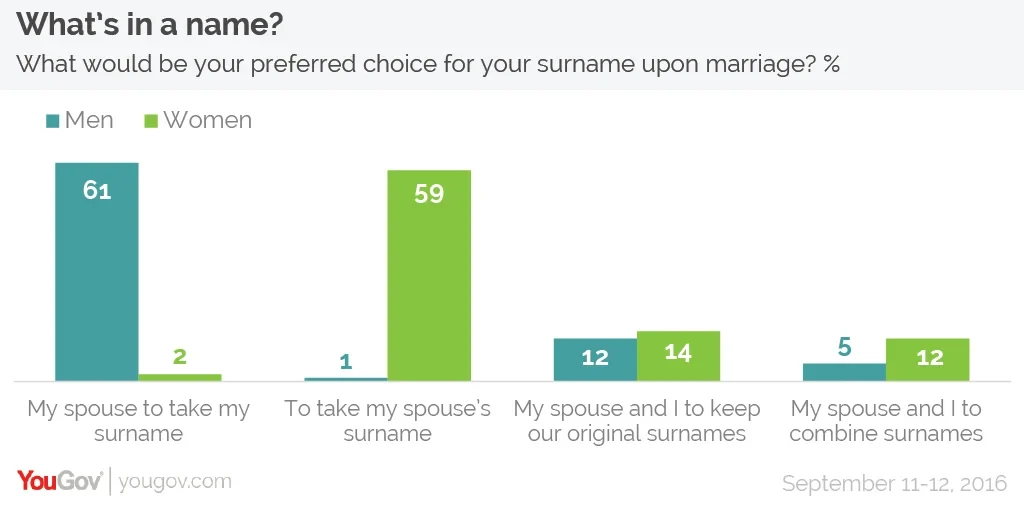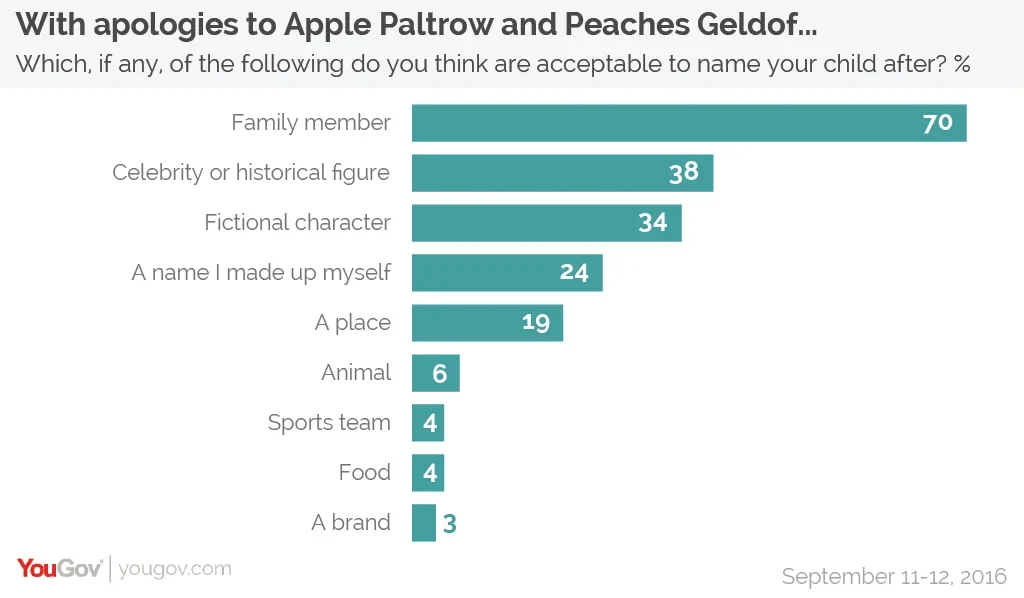The marriage tradition is still going strong, with younger women just as likely to want to take their partner's surname as older women
The practice of a woman taking her husband's name upon marriage is not as old as you might think. According to Dr Sophie Coulombeau, the habit began in the 15th Century and had become widely adopted by the 17th Century – prior to this, a married woman was considered to lose her surname upon marriage and have no surname whatsoever!
Fast forward to 2016, and the practice of women taking their husband's name is still popular – though alternatives have gained a foothold. New research by YouGov finds that the majority of women (59%) would still like to take their spouse’s surname upon marriage – and 61% of men still want them to do so. Surprisingly, given the shift away from traditional values among younger people, younger women are just as likely to want to take their spouse’s name than older women.

Much less popular is for both partners to keep their original surnames upon marriage (14% for women and 12% for men), whilst 8% of people want to combine surnames, although this is more popular with women (12%) than men (5%).
For those people who wanted to themselves and their spouse to keep their original surnames upon marriage, we also asked whose surname any children they had should take. The most popular option at 42% was for the children to have a combined version of their parents’ surnames.
After this, the next most popular option was for the children to receive the father’s surname, which was preferred by 32% of men and 21% of women, whilst 18% of women and 12% of men wanted their children to receive the mother’s surname.
With apologies to Apple and Peaches...
The ONS has documented the impact that popular culture has on baby name choices, showing how celebrities and popular tv shows and movies drive increases in baby names – for instance the name Elsa surged after the movie Frozen was released. Overall, 38% of people believe that it is ok to name a child after a celebrity or historical figure, and 34% think it is ok to name them after a fictional character.

The vast majority of people (70%) think that it is ok to name a child after a family member – although this drops to 15% of people who think that it is ok to give your child the same first name as you (at 21%, men are more than twice as likely as women to think this is ok).
Just 4% of people would follow in the footsteps of Bob Geldof and Gwyneth Paltrow and name their child after food – about the same number of people who think it is ok to name a child after an animal, sports team or brand.
Photo: istockphoto










